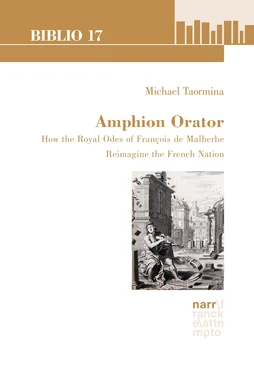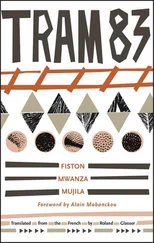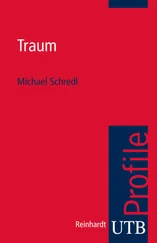Michael Taormina - Amphion Orator
Здесь есть возможность читать онлайн «Michael Taormina - Amphion Orator» — ознакомительный отрывок электронной книги совершенно бесплатно, а после прочтения отрывка купить полную версию. В некоторых случаях можно слушать аудио, скачать через торрент в формате fb2 и присутствует краткое содержание. Жанр: unrecognised, на английском языке. Описание произведения, (предисловие) а так же отзывы посетителей доступны на портале библиотеки ЛибКат.
- Название:Amphion Orator
- Автор:
- Жанр:
- Год:неизвестен
- ISBN:нет данных
- Рейтинг книги:4 / 5. Голосов: 1
-
Избранное:Добавить в избранное
- Отзывы:
-
Ваша оценка:
- 80
- 1
- 2
- 3
- 4
- 5
Amphion Orator: краткое содержание, описание и аннотация
Предлагаем к чтению аннотацию, описание, краткое содержание или предисловие (зависит от того, что написал сам автор книги «Amphion Orator»). Если вы не нашли необходимую информацию о книге — напишите в комментариях, мы постараемся отыскать её.
Amphion Orator — читать онлайн ознакомительный отрывок
Ниже представлен текст книги, разбитый по страницам. Система сохранения места последней прочитанной страницы, позволяет с удобством читать онлайн бесплатно книгу «Amphion Orator», без необходимости каждый раз заново искать на чём Вы остановились. Поставьте закладку, и сможете в любой момент перейти на страницу, на которой закончили чтение.
Интервал:
Закладка:
Instead, this book’s reconsideration of Malherbe’s royal odes in terms of ideology and eloquenceeloquence has been nourished by several overlapping areas of historical research. My thesis director, Pierre Force, an unfailing source of erudition and encouragement, first set me on this path many years ago when he urged me to read Marc FumaroliFumaroli, Marc’s L’Âge de l’éloquence . Since then, the work of many other scholars, Jean-Pierre Chauveau, James BiesterBiester, James, Debora K. ShugerShuger, Debora K., Eugene GarverGarver, Eugene, Mark Bannister, Peter W. Shoemaker, Mack P. HoltHolt, Mack P., Myriam YardeniYardeni, Myriam, Marcus KellerKeller, Marcus, and David Lee RubinRubin, David Lee, have immeasurably contributed to casting the odes in their proper historical and rhetorical light. But I owe a special debt of gratitude to Kathy EdenEden, Kathy, whose analysis of CiceronianeloquenceCiceronian decorum as it relates to literary hermeneutics suggested how I could legitimately link close textual analysis to historical context, especially for odes composed in an eminently oratorical age:
CiceroCicero defines eloquenceeloquence as the ability to practice decorum , defined in turn as the ability to accommodate the occasion, taking account of times, places, and persons: ‘This, indeed, is the form of wisdom that the orator must especially employ—to adapt himself to occasions and persons .’ As it affects poetry, he continues, decorum comes under the careful consideration of the grammaticus ( Orator CiceroOrator 72). For the interpretation of poetry, as the grammarian’s chief function, depends in large part on the very same set of questions asked by the orator in the interests of decorum: who, to whom, when, where, why, and so on. [ ] Interpreting poetry, in other words, is fundamentally a historical investigation, one grounded in the very questions that constitute the principle of decorum (EdenEden, Kathy, Hermeneutics 26-27).
Accordingly, Malherbe’s practicing of decorum in the composition of his royal odes not only requires that readers look beyond the text to the historical particulars of time, place, and persons, but actually justifies seeing these as already embedded in the fabric of the text. This is not to say that the odes are only mirrors of their context, but rather that an immanent reading of the odes reveals the dominant values, beliefs, and assumptions that Malherbe’s intended audience took for granted28—provided we keep in mind what the composition of such an audience owes to the poet’s own creative imagination. A merely positivist reading would risk overlooking how the poet-orator constructs an adequate concept of his audience (Perelman 33)—adequate to the historical particulars, certainly, but also to the poet’s own poetic imagination. Malherbe’s royal odes address the monarch and the subjects of France, but they also aim to create a new national communitynationnational community out of the existent constituencies they address.
By attending to the odes’ rhetorical tactics and strategies, this book restores the sociopolitical dimensions to a poetic form—the royal encomiumencomium—too quickly dismissed by critics as “a game” or “merely an ornament of power.”29 Poetry may not have been the divine discourse of the humanities, with special access to wisdom, as the Pléiade contended. But it was more than mere honnête divertissement (noble diversion).30 Poetry was a minor art in a variety of ways, but major political elites nevertheless made use of it for their own purposes. This fact alone would have sufficed to assign poetry a sociopolitical function even if Malherbe were not aspiring to be more than a bon joueur de quilles [good player of skittles]. The extra-literary function of the royal odes is not merely suggested by their conditions of production: such a purpose is sometimes explicitly stated in the poems. Only when severed from any meaningful external purpose does early seventeenth-century poetry, and the royal encomiumencomium in particular, look like an ornament or a game. Is it any surprise, then, that twentieth-century criticism, with its formalist bias, has paid such excessive attention to word usage, grammar, versification, logical coherence, or semantics in early seventeenth-century poetry? Even the more seductive theoretical approaches inspired by Bachelard or Genette miss the mark, as they mistakenly assume poetry’s full-fledged emancipation from patronage, when in fact it was taking its first steps toward literary autonomy only at the end of the seventeenth century. Norbert Elias in The Court Society does well to remind us that what modern readers too often take to be purely esthetic values were perceived by early moderns also as “the finely shaded expressions of social qualities” (Elias 58). The pleasure of the esthetic, of play, simultaneously served other ends—social and political ends. If poetry in the early seventeenth century was a game, it was a dangerous one. The claim that poets were minor rhetoricians, or that poetry occupied a minor place in the res literaria [literary canon], is belied by the political persecution of Théophile de Viau for a sonnet. If nothing was really at stake in the writing of poetry, then why did anyone take the trouble to notice? By the same token, the stark contrast between the high ambition sounded in Malherbe’s odes and his deprecating remarks about poets and poetry needs to be taken in context. As Racan himself observes of the master: “His greatest happiness was to entertain his friends Racan, Colmby, Yvrande and others, with his contempt for all those things which the world most esteems” (Racan, Malherbe 33). Such disdain for poetry and poets was surely ironic, an aristocratic pose meant to shock and to delight close friends. Malherbe’s sardonic sense of humor is not a reliable indication of his true feelings, or, if it is, must be read in reverse. He was likely parodying the reductive view of the poet’s role in French society, one which neither he nor his friends shared—at least, that is, before Racan became devout. So, while trying to avoid the mistake of giving poetry too central a place in early seventeenth-century France, this book nevertheless rests on the claim that poetry was an important ornament wielded by the powerful for social and political ends.
Part I, “Praising the Great Soulmagnanimitygreat soul,” sets up the social, political, and rhetorical framework for the close reading of the odes in Part II. Chapter 1, “Literary Patronage,” shows how the magnanimitymagnanimity of Malherbe’s royal patron, Henri IV, influences the entire sequence’s conception of audience. Ethosethos is the rhetorical tool that allows the poet to adapt himself and his poetic discourse to the monarch, whose two bodies, personal and collective, determine the royal odes’ construction of a new national communitynationnational community. Chapter 2, “The Evolution of Noble Identitynobilityidentity,” looks to the changes affecting noble identitynobilityidentity in the late sixteenth and early seventeenth centuries to explain the centrality of virtuevirtue in the royal odes. The analysis of Aristotelian magnanimitymagnanimity in particular reveals an unsuspected logical consistency and political ground underlying these encomiasticencomiumencomiastic poetry poems. The praise for Henri IV’s magnanimitymagnanimity justifies his accession to the throne but also transforms the king into a quasi-divine hero. Chapter 3, “The Search for Royal Eloquence,” the longest of these preliminary chapters, situates the royal odes relative to Gallican and JesuiteloquenceJesuit eloquenceeloquence. It examines the hybrid genus dicendi of the odes, their accessory political functionpolitical function, and their incorporation of the rhetorical methods of wonderwonder in support of Henri’s ideological program. To grasp Malherbe’s idea of eloquenceeloquence, the roles of phronēsis phronēsis [practical wisdomphronēsispractical wisdom], moral virtuevirtue, elocutio styleelocutio [style] and the emotionemotions are analyzed. The “admirable style” is not wholly rejected but rather modified by a CiceroCiceronian AtticismCiceroAtticism tinged with the suggestiveness and emotionemotional intensity of HellenisticstyleHellenistic plainstyleplainness. While owing more to the polish and abundance of Isocrates, Malherbe still borrows from the Longinian sublime. Powerful figures of thoughtfigures of thought underpin the self-description of the royal odes as portraitethosportraits portraitMinervaof characterportraits of character capable of changing readers’ perceptions of the monarch. The result of such close rhetorical analysis is to show on what basis the speaker of the odes becomes a model subject of the new nationnation.
Читать дальшеИнтервал:
Закладка:
Похожие книги на «Amphion Orator»
Представляем Вашему вниманию похожие книги на «Amphion Orator» списком для выбора. Мы отобрали схожую по названию и смыслу литературу в надежде предоставить читателям больше вариантов отыскать новые, интересные, ещё непрочитанные произведения.
Обсуждение, отзывы о книге «Amphion Orator» и просто собственные мнения читателей. Оставьте ваши комментарии, напишите, что Вы думаете о произведении, его смысле или главных героях. Укажите что конкретно понравилось, а что нет, и почему Вы так считаете.












